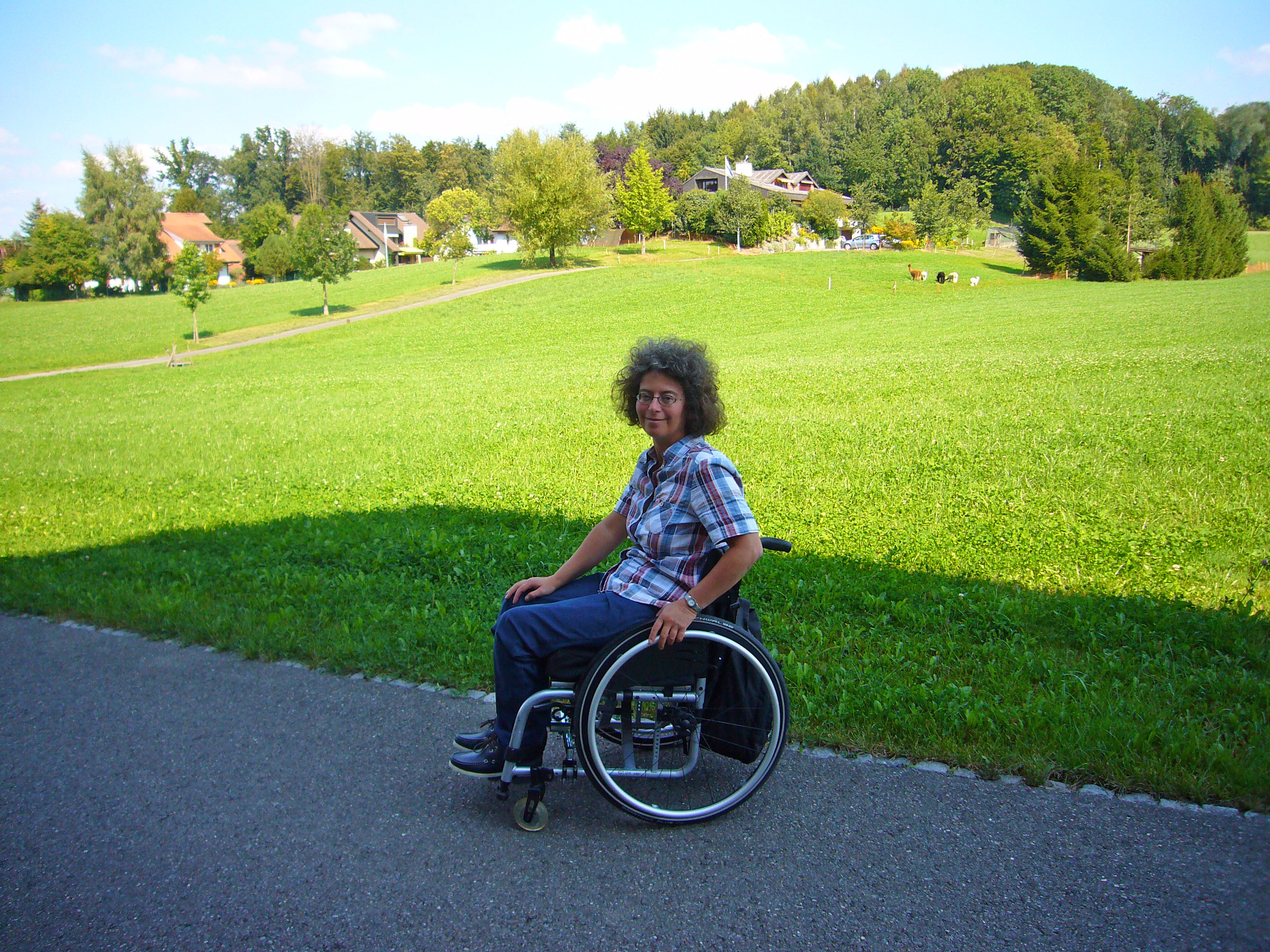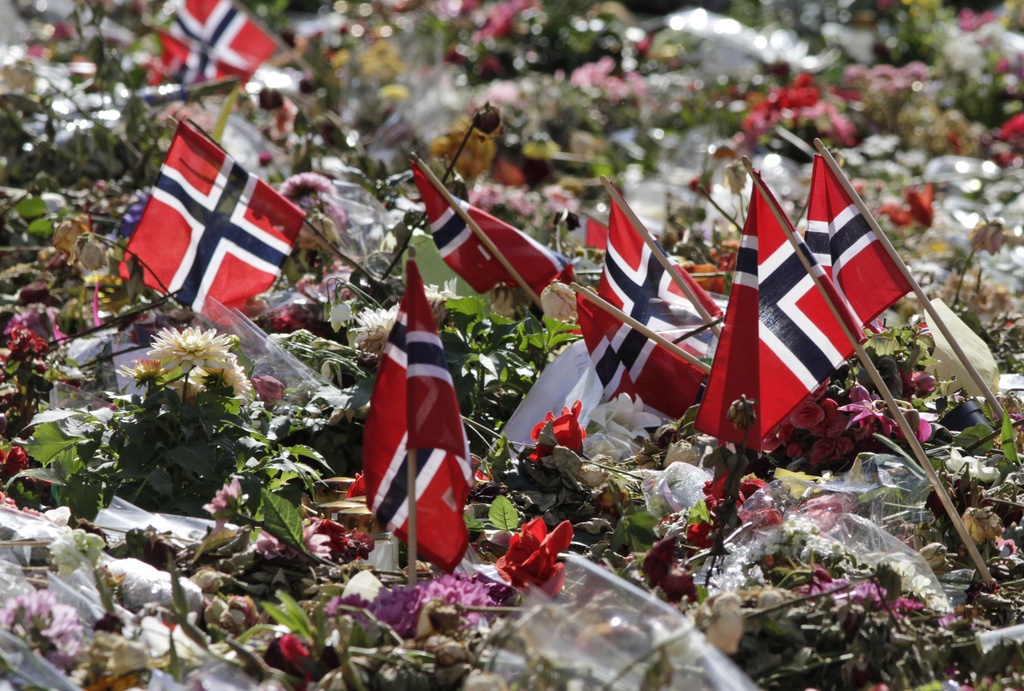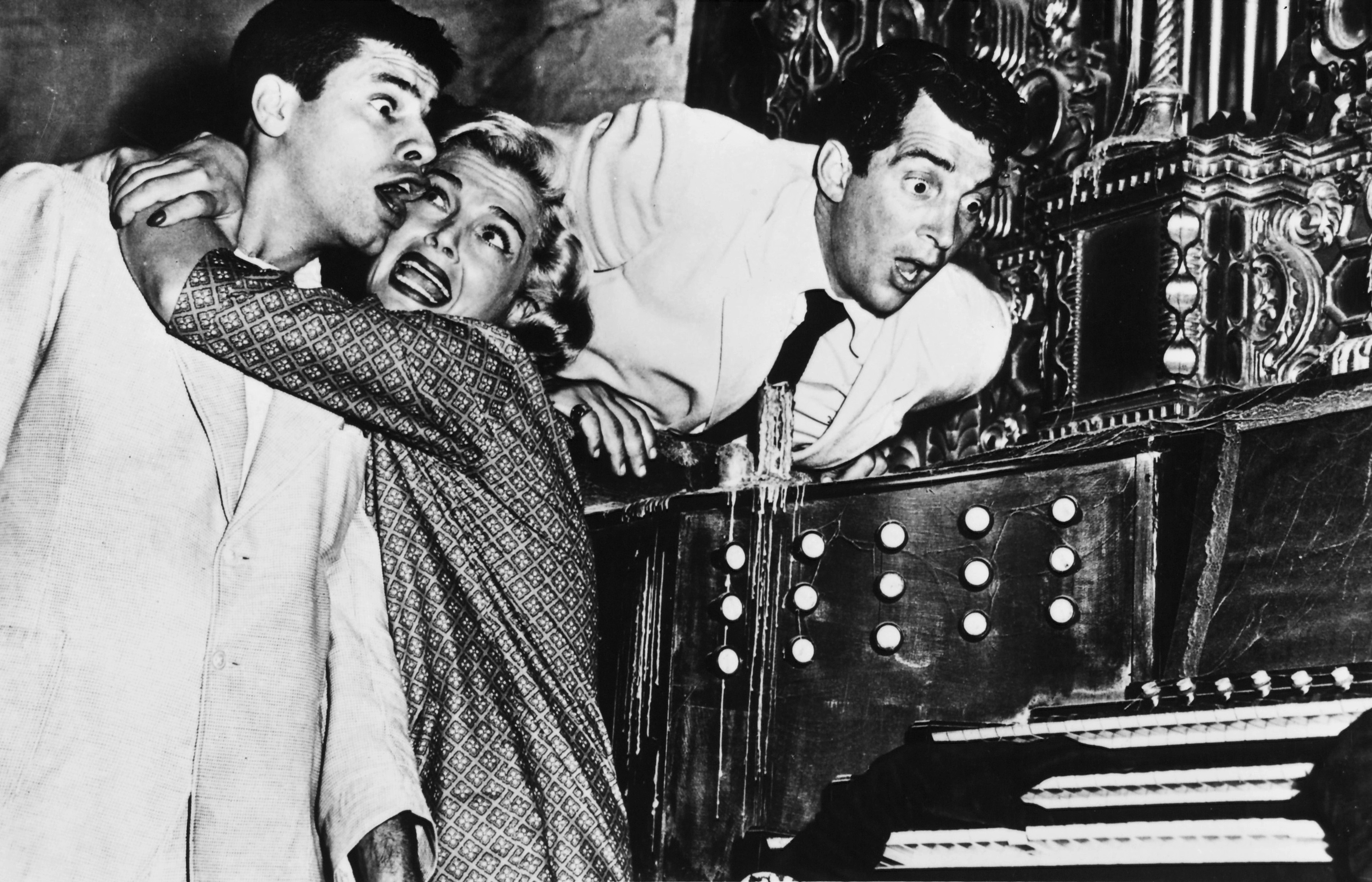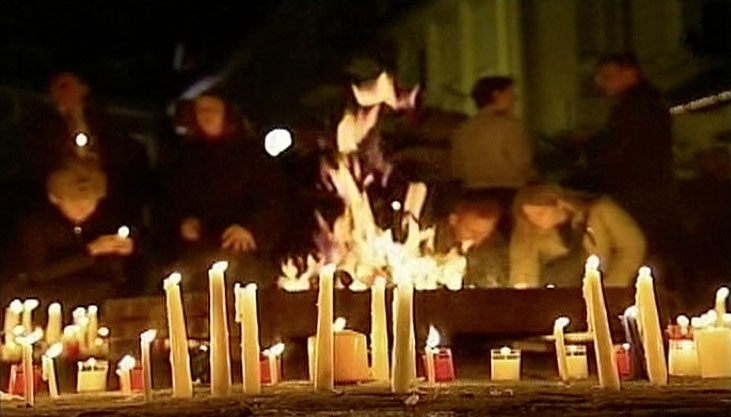Zug shooting spree leaves lasting memories

On September 27, 2001, Switzerland was left reeling by a gunman’s attack on the Zug regional parliament, which killed 14 local politicians.
Coming as it did barely two weeks after the attack on New York’s twin towers, the shooting spree was especially traumatic.
The gunman, who bore a grudge against the legal system which he felt had treated him unfairly, left another 18 people injured, some of them seriously.
One of them was Anne Ithen, a member of the left-green group, who was the deputy speaker and had a job as a secondary school teacher. The injuries she received that day have confined her to a wheelchair.
She has not been back inside the chamber of the Zug cantonal parliament since that day ten years ago. She feels no need to see again the scene where it all happened: it never goes away.
“Every day when I should be getting up and can’t, but instead have to sit up and work my way onto my wheelchair, the attack is there in my mind,” she told swissinfo.ch.
She was struck by three bullets: one in her spinal cord and lung, one – which shattered – in the stomach area, and one in the leg. For weeks it was touch and go whether she would survive.
Since that day she has been paraplegic. She has only one third of her stomach, her large intestine had to be reconstructed and shortened, she has only one kidney and both lungs were damaged.
I’m glad he’s dead
As a result of her severe injuries, Ithen’s body was seriously weakened, and her weight dropped to a mere 40 kilogrammes.
If she had not previously been very fit, and if she had not had a strong will to live and support from her partner, she says she would not have pulled through.
“I didn’t even have enough strength to open a tube of toothpaste. My nails didn’t grow, my hair fell out, my periods stopped.”
She spent ten months in hospital and in physiotherapy.
She has vivid memories of the terrible minutes the attack lasted – but not visual ones.
“I kept my eyes shut on purpose so as not to see what was happening. I didn’t want to fix the image of the killer in my mind.”
Ithen is glad Leibacher is dead.
Today, and especially after the killings in Norway in July, she often thinks about what such events mean for the survivors and the families and friends of the victims.
“I know from my own experience that the people who were close to the victims are often forgotten. That is something that should get more attention.”
Integration
Ithen wanted to survive, to return to politics and to teaching, but as she saw her physical and mental strength fail, she fell into depression and didn’t believe she would ever get back to a semblance of normal life.
She resigned as a politician in 2002, but barely a year after the shooting, she went back to teaching.
“The students accepted me as a teacher in a wheelchair, but I found it harder to keep discipline, probably because my teaching wasn’t as dynamic as it had been before,” she said.
She was no longer happy with large classes, because she was much more limited in her teaching method than she used to be.
Today she is still teaching young people, but only subjects where it is possible to have quite small classes so that even in a wheelchair she can do different things with them. She also gives foreign language classes to adults.
“I’ve found a rewarding combination, which enables me to enjoy teaching again,” she explained.
The school is 200 metres away, and she gets there by wheelchair. When there is snow and ice, colleagues come to pick her up.
In the slow lane
Ithen, who always loved to be out and about, who was into climbing mountains and glaciers, and generally lived at a fast pace, found it difficult to get used to her “new” body and to slowing down – and it’s still hard.
But living more slowly has advantages too.
“You often strike up a conversation with others in the slow lane: children, elderly people, the disabled, people with dogs.”
A few years ago she started going back to the mountains, with her Swisstrac, a “wheelchair towing tractor”, which is able to travel over rough surfaces.
“I love getting to a Swiss Alpine Club. Before, it used to be the starting point for a mountain hike, now it’s the goal. But that means I have more time to look at the plants on the way.”
Optimist and realist
Perhaps Ithen still isn’t totally used to life in a wheelchair. But she accepts her new reality.
“I was always regarded as over optimistic, and I tend to be the kind of person who tries to make something of a situation, rather than going over and over the past in your mind.”
Even if for a time she sank into apathy and stopped smiling, now she is back to the person she was before.
But that gun attack never goes away. She jumps whenever a door slams, she doesn’t like sitting with her back to the door. And at night she keeps dreaming about fires or other natural forces which threaten her and which she can’t escape because she can’t move fast enough.
But she doesn’t dream about firearms.
On September 27, 2001, Friedrich Leibacher stormed into the chamber of the Zug cantonal parliament.
He was wearing a home-made police vest, and carrying a number of weapons, including an assault rifle, a pistol and a revolver.
In the space of two and a half minutes he fired more than 90 shots and ignited a home-made bomb.
At the end of the attack he killed himself.
Three members of the cantonal government and 11 members of parliament were killed.
Another 18 people were injured, some of them seriously.
Leibacher’s chief target, minister Robert Bisig, was unharmed.
Leibacher, who was 57, had a long history of legal disputes with the authorities, and felt he had been treated unfairly.
Switzerland experienced a series of traumatic events in late 2001.
11.9.: Terrorists in the US killed about 3,000 people in a coordinated attack using four hijacked planes.
27.9.: A man with a judge against local politicians burst into the Zug cantonal parliament, shot dead 14 people and injured 18 more, before turning the gun on himself.
2.10.: Planes of the Swiss national airline, Swissair, were grounded all over the world because the company could not pay its bills.
24.10.: Two lorries crashed into each other in the Gotthard road tunnel, sparking a fire which killed 11 people and led to a two-month closure for repairs.
24.11.: A Crossair plane from Berlin crashed at Bassersdorf, just short of Zurich airport, killing 24 of the 33 passengers and crew.
(Adapted from German by Julia Slater)

In compliance with the JTI standards
More: SWI swissinfo.ch certified by the Journalism Trust Initiative




You can find an overview of ongoing debates with our journalists here. Please join us!
If you want to start a conversation about a topic raised in this article or want to report factual errors, email us at english@swissinfo.ch.